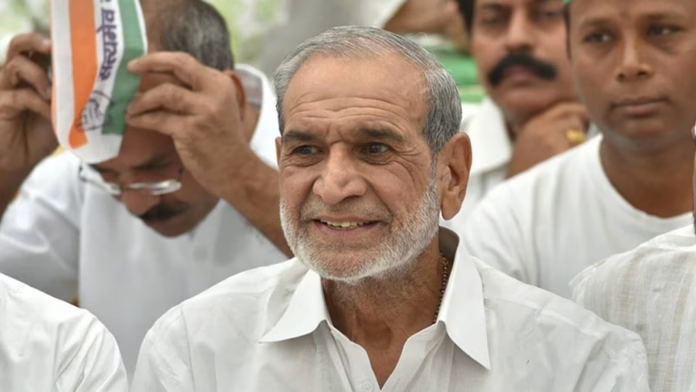In a landmark judgment, a Delhi court convicted former Congress MP Sajjan Kumar on February 12, 2025, for his role in the 1984 anti-Sikh riots. This verdict brings renewed focus to one of the darkest chapters in Indian history, where thousands of Sikhs were massacred in the aftermath of Prime Minister Indira Gandhi’s assassination. Kumar, already serving a life sentence in Tihar Jail for another case related to the riots, was found guilty of inciting violence and leading a mob that killed two Sikhs in Delhi’s Saraswati Vihar.
In This Article:
Background: The 1984 Anti-Sikh Riots
The 1984 anti-Sikh riots erupted following the assassination of Indira Gandhi by her Sikh bodyguards. Over three days, Sikh homes, businesses, and gurdwaras were attacked, leading to the deaths of thousands across India. The violence was particularly severe in Delhi, where mobs, allegedly led by political leaders, unleashed terror on the Sikh community.
For decades, justice for the victims remained elusive. Many perpetrators were never prosecuted due to a lack of evidence, witness intimidation, and political interference. However, after the Narendra Modi-led government established a Special Investigation Team (SIT) in 2014 to reinvestigate the riots, several high-profile cases were reopened, leading to convictions like Kumar’s.
Sajjan Kumar – Role in the Riots
According to the prosecution, Sajjan kumar led an armed mob that targeted the Sikh community in Delhi. The court found him guilty of inciting violence, looting, and arson, which resulted in the brutal killing of Jaswant Singh and his son Tarundeep Singh in Saraswati Vihar on November 1, 1984. Witnesses testified that Kumar played a central role in organizing and directing the attacks.
Despite multiple allegations over the years, Sajjan Kumar had consistently denied his involvement. However, the court ruled that sufficient material and witness statements established his direct participation in the violence.
Legal Proceedings and Conviction
The court had reserved its verdict in December 2024 after hearing final arguments. On February 12, 2025, Kumar was convicted, with the sentencing hearing scheduled for February 18. His conviction is a result of relentless efforts by victims’ families, activists, and legal experts who fought for justice for decades.
The case against Kumar was built on the testimonies of survivors and eyewitnesses who risked their lives to speak against powerful political figures. The SIT played a crucial role in gathering evidence and ensuring that perpetrators like Kumar faced trial.
Political and Social Reactions
BJP Government’s Stance
The Bharatiya Janata Party (BJP) government has highlighted Kumar’s conviction as a victory for justice. Home Minister Amit Shah stated that this verdict reaffirms the government’s commitment to ensuring accountability for the 1984 riots.
Congress’s Response
The Congress party has distanced itself from Kumar, emphasizing that he no longer holds any official position within the party. Congress spokespersons have stated that the law must take its course and justice should be served.
Sikh Community’s Reaction
For the Sikh community, this conviction is a long-overdue step toward justice. Many Sikh organizations and human rights activists have welcomed the judgment, calling for further investigations into other accused individuals who remain unpunished.
The Road Ahead: What This Conviction Means
Justice for Riot Victims
Kumar’s conviction is a significant milestone in the fight for justice, but many believe it is just the beginning. Several other key figures accused of orchestrating the riots are yet to be prosecuted.
Legal Precedents and Future Cases
This judgment sets a precedent for prosecuting political leaders involved in communal violence. It also strengthens India’s legal framework in dealing with cases of mass violence and delayed justice.
Impact on Indian Politics
With the 2024 general elections having reinforced the BJP’s commitment to delivering justice, this verdict could have political implications, particularly for the Congress party, which has faced allegations of shielding the accused in the past.
The conviction of Sajjan Kumar in the 1984 anti-Sikh riots case is a crucial step towards justice. It underscores the importance of perseverance in legal battles and the need for accountability, no matter how delayed. While this verdict brings some closure to the victims’ families, the larger fight for justice continues, as survivors and activists push for action against other perpetrators of the 1984 riots.
By – Jyothi




